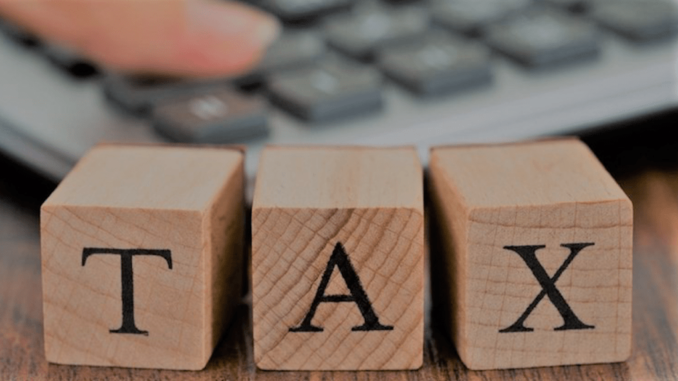
The need to restructure Nigeria is daily dawning despite the recalcitrance of the free riders in authority. Flowing with the tide and putting the country on strong political footing and path to social progress will benefit all. This sense was recently indicted in the judgment of the Federal High Court in Port Harcourt. Precisely on August 9, 2021, the court ruled that the Rivers State government, not the Federal Inland Revenue Service (FIRS) has the right to collect Value Added Tax (VAT) and Personal Income Tax (PIT) in Rivers State. The presiding Justice Stephen Dalyop Pam consequently issued an order of perpetual injunction restraining FIRS and the Attorney General of the Federation, both first and second defendants in the suit, from collecting, demanding, threatening, and intimidating residents of Rivers State to pay to FIRS, PIT and VAT. The court, which granted all the 11 reliefs bordering on fiscal federalism sought by the Rivers State government, held that it was unconstitutional for the FIRS to demand and collect VAT, Withholding Tax, Education Tax and Technology levy in Rivers State or any other state of the federation, for the reason that the constitutional powers and competence of the Federal Government is limited to taxation of incomes, profits and capital gains, without VAT or any other species of sales, or levy other as engrossed in items 58 and 59 of the Exclusive Legislative List of the 1999 Constitution as amended.
The point should be made that this aspect of testing the fiscal federalism component of the Nigerian federal structure atomised by the players at the central government had come under legal scrutiny before. In October 2019, the FHC in The Registered Trustees of Hotel Owners and Managers Association of Lagos v. AG of the Federation & Others over the validity of the Hotel Occupancy and Restaurant Consumption Law of Lagos State upheld the powers of Lagos State to charge and collect Consumption Tax from hotels, restaurants and event centres within the state based on the content and spirit of the 1999 Constitution as amended and therefore restrained FIRS from imposing VAT on goods and services consumed in hotels, restaurants and event centres covered by the law of Lagos State government. Similarly, in December 2020, in the case of Ukala v. FIRS, the FHC expressly held that the National Assembly had no power to enact the VAT Act, in a determination of the powers of the Federal Government to make laws concerning taxation other than taxation of incomes, profits and capital gains as engrossed in the constitution. For that reason, there was no constitutional basis for the imposition, demand, and collection of VAT by the FIRS based on the constitutional powers of FIRS to do so.
Given the consequential nature of the judgment, the Rivers State government has since formally engrossed its law to rake in resources within its residual powers. However, sundry commentators have pointed to the implication of this development. Concerns have been expressed that the Federal Government would lose billions of naira in tax revenue as the bandwagon effect would make other states follow the Rivers example in ways that could compound its liquidity amidst plummeting crude prices and the volatility of oil futures. By some statistics, at a 7.5 per cent VAT rate, Nigeria might have raked in 2.5 trillion from VAT in the last18 months- January 2020 to June 2021.
In 2020, the total VAT collection was put at N1.53 trillion. Well, a window is still open to the Federal Government through FIRS administration of VAT in the FCT and non-import foreign VAT from the Nigeria Customs Service (NCS) on international trade. Truly, since the advent of the VAT regime in 1993, VAT has generated a lot of revenue for the central government. In the last three years alone, VAT has contributed ₦1.108 trillion, ₦1.19 trillion, and ₦1.5 trillion respectively.
Nevertheless, fiscal federalism is to be preferred to free-riding at the centre. This is exactly what we have been advocating for 44 weeks in this serial on “federalism as the answer…” The point was well made by Kenneth Wheare, an Australian academic in his classic, ‘Federal Government’ that you have no federalism without fiscal autonomy. This has been unconscionably undermined by the free-booters at the centre with a mindset to privatising Nigeria as a feudal estate. This is unacceptable!
Indeed, experts have noted that the reliance on transfers and grants from central government to finance sub-national government expenditure creates an incentive for sub-national governments to blow up expenditure and engage in recurrent negotiations with the central government for more money, a somewhat Oliver Twist syndrome. This is precisely the matter with us that has entrenched free-riding in a context where central funds are derived from unearned income, namely, the exploitation of natural resources distributable among the national and sub-national governments. This practice has proven destructive to the political stability of the country. Let the component governments enjoy financial autonomy and drive development within their respective jurisdictions.
After all, federalism is the answer, and its negation is a recipe for state collapse. So, the jurisprudential significance of the judicial pronouncement on VAT and PIT in Port Harcourt, capital of Rivers State should not be wasted by the authorities in Abuja who don’t seem to know that it is only where the law rules that we call a government, not where man rules.
END

Be the first to comment